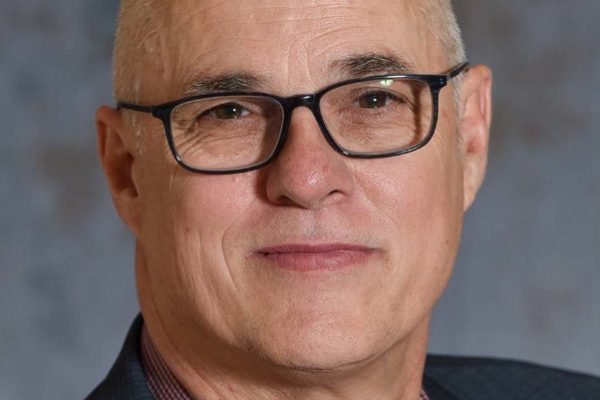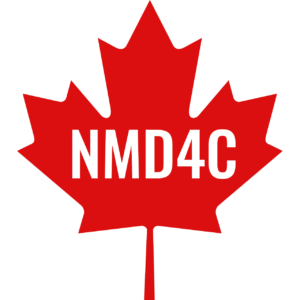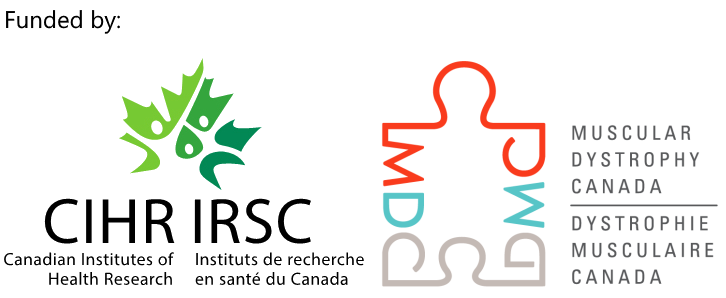Michael Rudnicki

Co-Applicant
Professor of Medicine and Cellular and Molecular Medicine, and Program Director of Regenerative Medicine at uOttawa | Scientific Director of the Canadian Stem Cell Network
Senior Scientist and Director of the Regenerative Medicine Program and the Sprott Centre for Stem Cell Research at Ottawa Hospital Research Institute
NMD4C Involvement: Pillar 1: Preclinical Science
Research Interests: Stem cells; Satellite cells; Skeletal muscle; Regeneration; Muscular dystrophy; Genetics; Molecular biology, Transcription, Signalling; Polarity; Asymmetric division
Academic web profileGoogle Scholar profile
LinkedIn profile
ResearchGate profile
ORCiD profile
Twitter profile
Biography
Michael Rudnicki is a Senior Scientist and the Director of the Regenerative Medicine Program and the Sprott Centre for Stem Cell Research at the Ottawa Hospital Research Institute. He is Professor in the Department of Medicine at the University of Ottawa. Dr. Rudnicki is Scientific Director of the Canadian Stem Cell Network (SCN) and Chief Scientific Officer and Founder of Satellos Bioscience. Dr. Rudnicki’s achievements have been recognized by numerous honors including being named an Officer of the Order of Canada, a Fellow of the Royal Society (London), a Fellow of the Royal Society of Canada, and International Research Scholar of the Howard Hughes Medical Institute for two consecutive terms.
Dr. Rudnicki is an internationally recognized thought leader in molecular genetics and regenerative medicine whose research has transformed our understanding of muscle development and regeneration and has fueled the development of novel stem cell-based approaches to treat muscular dystrophy. Dr. Rudnicki discovered that the transcription factor Pax7 is required for adult muscle stem cell function, that muscle stem cells are a subset of satellite cells that self-renew through asymmetric divisions, and that Wnt7a regulates muscle regeneration. These studies led to the critical insight that the degree of asymmetric stem cell division controls the efficiency of muscle regeneration in ageing and in disease. Dr. Rudnicki discovered that the disease gene of Duchenne Muscular Dystrophy (DMD), called dystrophin, is expressed in muscle stem cells where its loss results in perturbation of cell polarity, markedly reduced numbers of asymmetric divisions, and reduced generation of progenitors. This work is paradigm shifting, suggesting that DMD pathology originates in part from a defect in muscle stem cell function. Dr. Rudnicki’s research contributions have had important impact in the wider field of stem cell biology. His work has elucidated the function and control of transcription factors in the specification and differentiation of stem cells and progenitors during development and during tissue regeneration. His insights into the molecular regulation of stem cell asymmetric division have shown that the degree of asymmetric division significantly impacts the efficiency of regeneration, and that the process is regulated. Altogether, Dr. Rudnicki’s body of work has transformed our understanding of myogenesis and opened the door to new therapeutic strategies to treat neuromuscular disease.
Dr. Rudnicki’s work is consistently published in top journals including Cell, Nature, Nature Cell Biology, Nature Medicine, and Cell Stem Cell. He holds major research grants from NIH, CIHR, SCN, and several health charities. Dr. Rudnicki is a member of the editorial boards of Cell Stem Cell, Journal of Cell Biology, and Stem Cells. He is a founding Co-Editor-in-Chief of the journal Skeletal Muscle. Dr, Rudnicki has also organized many international research conferences and was a founding Director of the Society for Muscle Biology.
For the past 18 years, Dr. Rudnicki has led the Stem Cell Network (SCN), a transformative initiative involving over 175 investigators across Canada. As Scientific Director of the SCN, he has forged a national community that transformed stem cell research in Canada and brought research to the point where regenerative medicine is impacting clinical practice.
Recent Publications
Guilhot, C, Catenacci, M, Lofaro, S, Rudnicki, MA. The satellite cell in skeletal muscle: A story of heterogeneity. Curr Top Dev Biol. 2024.158 15-51 PMID:38670703
Gurriaran-Rodriguez, U, Rudnicki, MA. Isolation of small extracellular vesicles from regenerating muscle tissue using Tangential Flow Filtration and Size Exclusion Chromatography. bioRxiv. 2024. PMID:38405765
Gurriaran-Rodriguez, U, Kodippili, K, Datzkiw, D, Javandoost, E, Xiao, F, Rejas, MT et al.. Wnt7a is Required for Regeneration of Dystrophic Skeletal Muscle. bioRxiv. 2024. PMID:38328077
Gurriaran-Rodriguez, U, Datzkiw, D, Radusky, LG, Esper, M, Xiao, F, Ming, H et al.. Wnt binding to Coatomer proteins directs secretion on exosomes independently of palmitoylation. bioRxiv. 2023. PMID:37398399
Kodippili, K, Rudnicki, MA. Satellite cell contribution to disease pathology in Duchenne muscular dystrophy. Front Physiol. 2023.14 1180980 PMID:37324396
Chen, W, Perkins, TJ, Rudnicki, MA. Quantification of Muscle Satellite Stem Cell Divisions by High-Content Analysis. Methods Mol Biol. 2023.2587 537-553 PMID:36401049
Esper, ME, Kodippili, K, Rudnicki, MA. Immunofluorescence Labeling of Skeletal Muscle in Development, Regeneration, and Disease. Methods Mol Biol. 2023.2566 113-132 PMID:36152246
Saber, J, Rudnicki, MA. Carm1 and the Epigenetic Control of Stem Cell Function. Stem Cells Transl Med. 2022.11 (11)1143-1150 PMID:36103286
Hekmatnejad, B, Rudnicki, MA. Transplantation to study satellite cell heterogeneity in skeletal muscle. Front Cell Dev Biol. 2022.10 902225 PMID:36092722
Baker, N, Wade, S, Triolo, M, Girgis, J, Chwastek, D, Larrigan, S et al.. The mitochondrial protein OPA1 regulates the quiescent state of adult muscle stem cells. Cell Stem Cell. 2022.29 (9)1315-1332.e9 PMID:35998642
See more on PubMed
